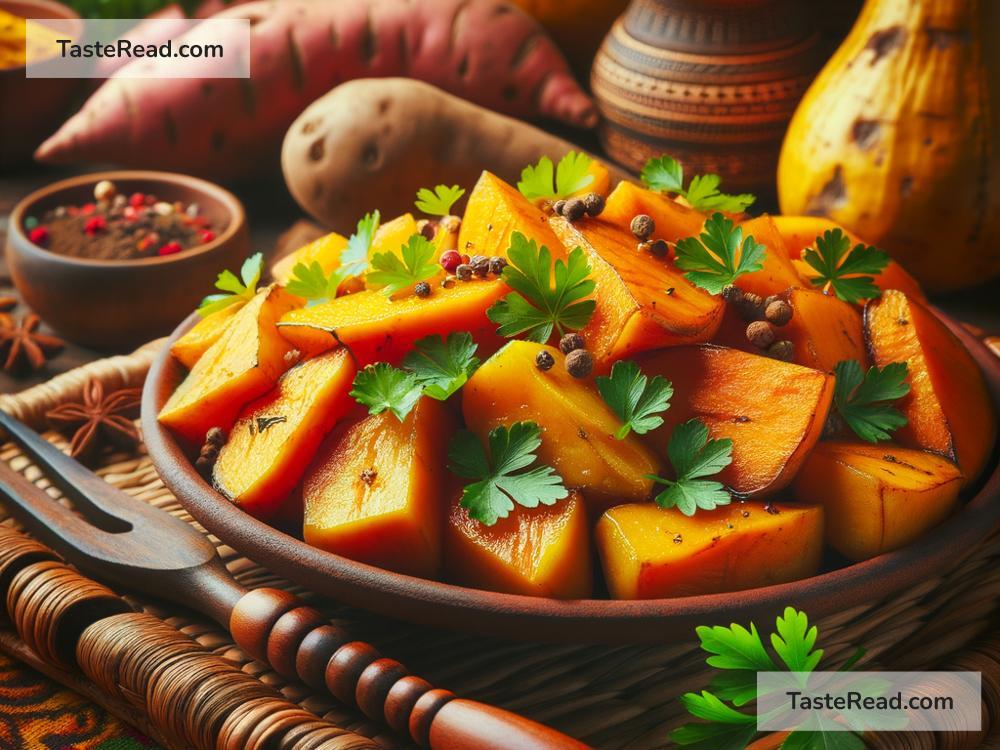The Curious Story of Sweet Potatoes in African Cuisine
Sweet potatoes are a popular ingredient in African cuisine today, but their journey to Africa is an interesting story filled with trade, colonization, and innovation. These orange-colored tubers, packed with nutrients and natural sweetness, have traveled many miles and centuries to become part of African food traditions. Let’s explore how sweet potatoes reached Africa, how they’ve been embraced by communities, and why they’re a key part of African cuisine today.
Sweet Potatoes Are Not African in Origin
Sweet potatoes are originally from Central and South America. Archaeologists believe they were first cultivated in regions like Peru and Ecuador thousands of years ago. Indigenous tribes in those areas ate sweet potatoes and used them in their cooking.
But Africa, as far back as history tells us, didn’t grow sweet potatoes until relatively recent times. So how did this nutritious root make its way across the Atlantic Ocean? The answer lies in trade routes and colonization.
Sweet Potatoes Come to Africa
The arrival of sweet potatoes in Africa is a story connected to the Age of Exploration. During the 15th and 16th centuries, European explorers and traders traveled to different parts of the world. Spanish and Portuguese sailors brought sweet potato plants with them to Africa as part of their treasure troves from the Americas. This was during a time known as the Columbian Exchange—a global movement of plants, animals, goods, and ideas between the Americas, Africa, Europe, and Asia.
Sweet potatoes were introduced to Africa’s tropical and subtropical regions because these climates were similar to those of the Americas. The plants adapted easily to the African soil, grew quickly, and produced large harvests, making them a valuable addition to local agriculture.
A Perfect Fit for African Cuisine
African communities quickly realized the enormous potential of sweet potatoes. The crop required little maintenance, was resistant to drought, and provided a reliable food source in regions where other staples might struggle to grow. Sweet potatoes also offered nutrition: they are rich in vitamin A, potassium, fiber, and antioxidants, making them great for improving overall health.
Sweet potatoes began finding their way into African recipes, where they blended beautifully with the continent’s diverse food traditions. African cooking is known for making use of local ingredients like grains, root vegetables, meats, and spices, with an emphasis on bold, comforting flavors. Sweet potatoes added a new twist to these classic dishes, thanks to their mild sweetness and hearty texture.
Creative Uses in African Dishes
Over time, sweet potatoes were incorporated into different recipes across Africa. In West Africa, for example, sweet potatoes are often boiled, roasted, or mashed and served alongside stews made with peanut sauce, chicken, or fish. Their natural sweetness pairs well with spicy and tangy flavors that define much of the region’s cuisine.
In East Africa, sweet potatoes are sometimes fried into crispy snacks or used in soups rich with coconut milk. In countries like Uganda and Kenya, sweet potatoes are even ground into flour to create porridge or baked goods.
Southern Africa also celebrates sweet potatoes in creative ways. “Potjiekos,” a traditional stew cooked in a cast-iron pot, might include sweet potatoes as one of its root vegetables. Sweet potatoes are popular in desserts too; they’re mashed and mixed with spices like cinnamon to make puddings or pies.
Throughout the continent, sweet potatoes are cherished both as a food staple and as a nutritious complement to other dishes.
Sweet Potatoes Today
Sweet potatoes have earned their place in African cuisine. They’re now part of everyday meals, but also show up during special celebrations and holidays. For example, in many rural areas, sweet potatoes are enjoyed at harvest festivals, where communities come together to give thanks for food and farming.
In recent years, efforts to promote vitamin-rich sweet potatoes in Africa have grown. Organizations like the United Nations and local agricultural programs have encouraged farmers to grow more sweet potatoes, especially orange-fleshed varieties. These varieties have been shown to reduce vitamin A deficiency, which is a health concern in several African countries.
The versatility of sweet potatoes has helped them thrive in Africa’s ever-changing food landscape. They are affordable, filling, and easy to prepare, making them a favorite among both rural and urban families.
The Sweet Bond Between Africa and Sweet Potatoes
The story of sweet potatoes in African cuisine is a reminder of how food connects cultures and continents. A humble crop from the Americas found its way to Africa centuries ago, and today it’s deeply rooted in African life. Sweet potatoes have adapted to the continent’s soil, climate, and culinary traditions, becoming more than just a foreign crop—they’ve become part of Africa’s identity.
Next time you enjoy a dish with sweet potatoes—whether it’s baked, fried, mashed, or stewed—take a moment to think about their journey across oceans and their incredible impact on African cooking. They are a delicious example of how food unites us all!


